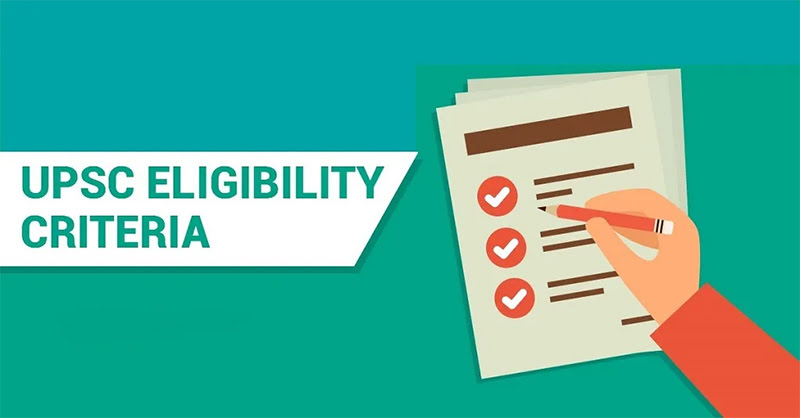To accomplish the dream about turning into an IAS or IPS officer, competitors should comprehend what the UPSC is. In this article, we will talk about the qualification rules for the UPSC exam. The Union Public Service Commission (UPSC) is the premier body responsible for directing assessments for different gathering posts in the Central Government and all India administrations. Prior to applying for the UPSC test, it is essential to know about the eligibility requirements, age limits, and the quantity of endeavors permitted. This blog will give nitty gritty data on UPSC qualification, age cutoff points, and endeavors.
UPSC Eligibility Criteria
The Union Public Service Commission (UPSC) Civil Services Examination ( (CSE) is perhaps of the most lofty and challenging examinations in India. Consistently, a great many hopefuls seek a set number of positions in the Indian Administrative Service (IAS), Indian Police Service (IPS), Indian Foreign Service (IFS), and other focal administrations. To guarantee just the top competitors are thought of, UPSC has laid out unambiguous qualification rules in regards to instructive capabilities, age limits, and the quantity of endeavors.
What is UPSC?
The Union Public Service Commission (UPSC) conducts the yearly recruitment assessment for the post of Indian Authoritative Assistance (IAS) officers. The UPSC is in charge of finding candidates for the civil and defense services. Understanding the UPSC exam exhaustively is pivotal for candidates expecting to succeed. Known as quite possibly of the hardest test in India, having thorough information about its necessities is fundamental. The prerequisites for the UPSC examination are outlined below.
Check Also:-
UPSC Age Limit
The UPSC age limit for the General category is 21 to 32 years. For qualification in the UPSC examination, applicants should meet the age models determined as follows: they should be somewhere around 21 years of age and not over 32 years of age as of August 1, 2024. Candidates must have been born between August 2, 1992, and August 1, 2003, according to this requirement.
UPSC Age Relaxation
The UPSC upper age limit referenced above can be loosened up under particular conditions:
- Candidates having a place with Scheduled Castes or Scheduled Tribes are qualified for a most extreme unwinding of five years.
- Candidates from Other Backward Classes (OBC) qualified for reservation can benefit of a most extreme unwinding of three years.
- Defence Services Personnel who were crippled in tasks during threats with a far off country or in an upset region and consequently delivered can get a most extreme unwinding of three years.
- A maximum relaxation of five years is available to ex-servicemen, including Commissioned Officers, Emergency Commissioned Officers (ECOs), and Short Service Commissioned Officers (SSCOs) who have completed at least five years of military service as of August 1, 2023, and who have been released due to completion of the assignment, physical disability attributable to military service, or invalidation.
- ECOs/SSCOs who have finished an underlying time of five years of military help as of August 1, 2023, and whose task has been reached out past five years can get a greatest unwinding of five years. They should have a testament from the Service of Protection expressing their qualification for common work with a three months notice period for discharge upon determination for the position.
- Candidates having a place with People with Benchmark Disabilities (PwBD) classifications, for example, visual deficiency and low vision, hard of hearing and deaf, locomotor inability including cerebral paralysis, uncleanliness relieved, dwarfism, corrosive assault casualties, strong dystrophy, chemical imbalance, scholarly incapacity, explicit learning disability, and psychological maladjustment, can benefit a greatest unwinding of a decade.
Check Also:-
UPSSSC Homeopathic Pharmacist Recruitment
IAS Eligibility- Educational Qualification
The different academic necessities according to the IAS Eligibility Criteria are given beneath:
- Minimum qualification for UPSC exam: The candidate should hold a degree from a government-recognised University or have an identical capability.
- The UPSC preliminary Examination is also open to candidates in their final year or those awaiting results. All such candidates who are probably going to show up for IAS tests should create verification of having breezed through the expressed assessment alongside the application for the main IAS examination.
- Applicants having professional and technical qualifications perceived by the Public authority as identical to expert and specialized degrees.
- Medical students who have spent the last year of MBBS, yet will be yet to finish their temporary job additionally have qualification for IAS. Alongside the Main Examination application, a testament obviously consummation (counting temporary position) from the concerned power of the University/Institution must be submitted.
UPSC Interview
Applicants who clear the mains exam are required the meeting at the UPSC central command in Delhi. This individual meeting is the last period of the choice interaction. Applicants who pass this stage are remembered for the legitimacy list. The eligibility requirements for the UPSC Civil Services Examination, also known as the IAS exam, are covered in this. It is quite possibly of the hardest test on the planet, with a huge number of candidates aspiring to get truly amazing jobs every year.
Check Also:-
ITBP Head Constable Recruitment
Final Words
All in all, meeting the UPSC eligibility criteria is vital for applicants. Having a perceived graduation degree is obligatory, close by comparable capabilities. Age limits change by classification, with unwinding for SC/ST and OBC candidates. Moreover, the quantity of endeavors permitted changes, guaranteeing fair open doors for all. Understanding and satisfying these standards prepare for contender to seek after their aspirations inside the UPSC system.
